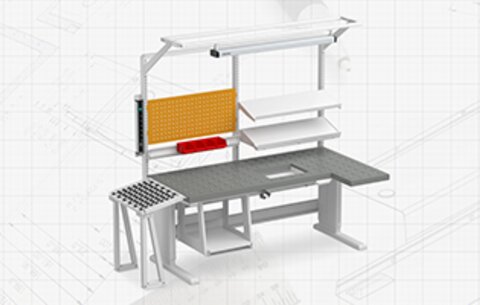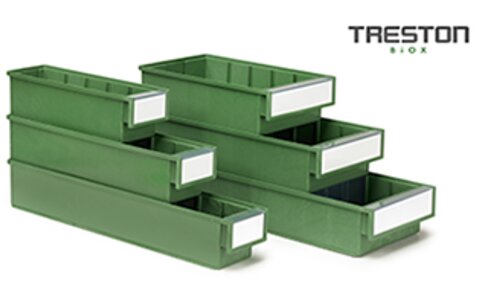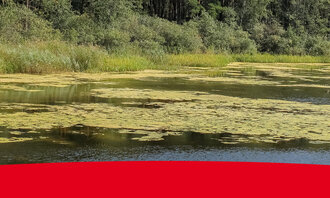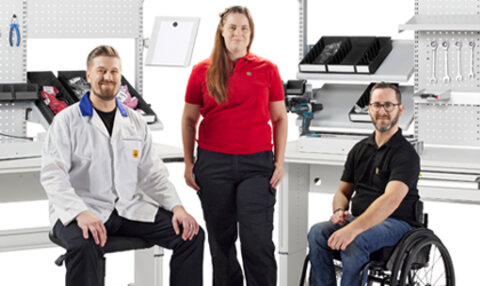

What does bioplastic mean?
What does the term bioplastic mean? What is the difference between bio-based and biodegradable plastic? Can bioplastics be made from fossil-based raw materials? In this blog article, we take a closer look at these frequently asked questions about bioplastics.
Many names for bioplastic
Bioplastics is a common term for plastics that are bio-based, biodegradable, or both.
The term bioplastic is a bit tricky, as it doesn’t tell you everything essential. Bioplastics are divided into bio-based and fossil-based plastics according to their raw material base, and into biodegradable and non-biodegradable plastics according to their degradation (see Figure 1). Bioplastics means plastics that are bio-based, biodegradable, or both. Bioplastics thus include all but the fossil-based and non-biodegradable plastics in the lower-left corner.
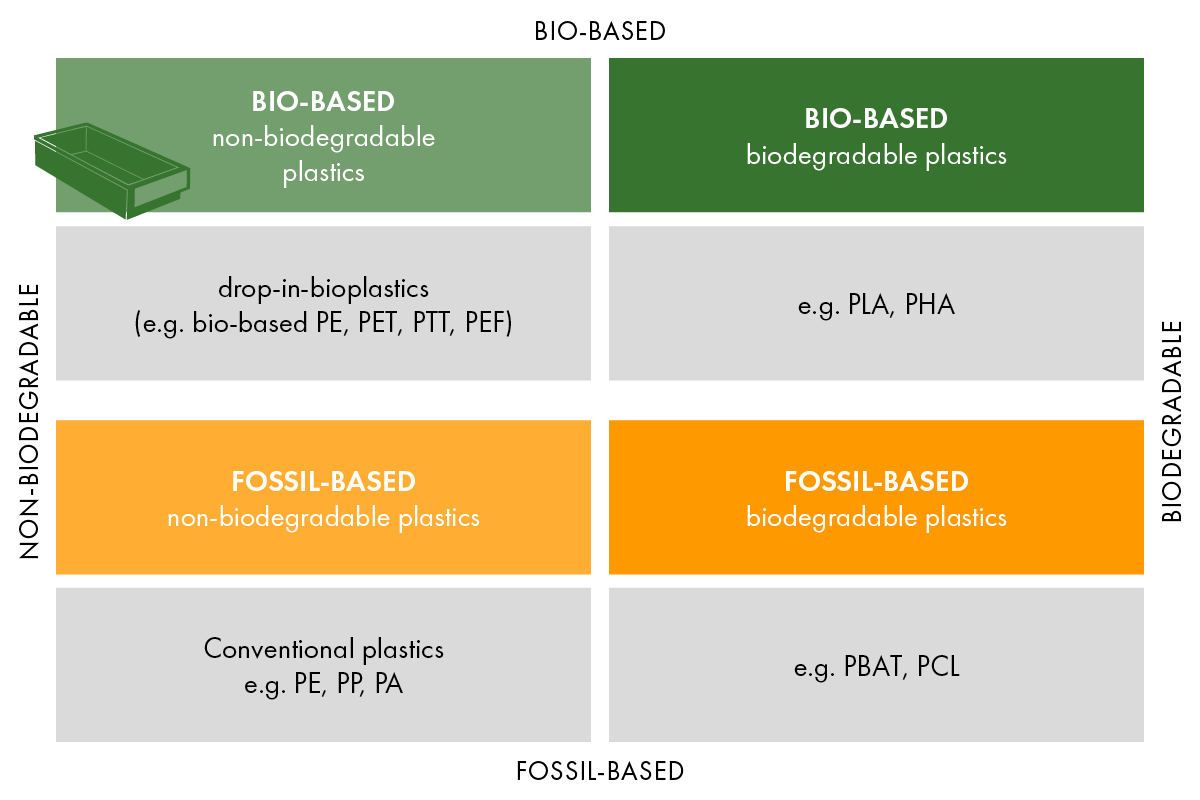
Bio-based plastic
The ‘bio’ prefix does not automatically mean that the plastic is biodegradable
Bio-based plastic is made in whole or in part from plants or other biologically produced raw materials. Examples of raw materials are corn, sugar cane, or cellulose. The ‘bio’ prefix does not automatically mean that the plastic is biodegradable or does not contain fossil-based materials. This misunderstanding causes confusion, especially with recycling.
Biodegradable plastic
Standardizing and testing biodegradability under natural conditions is challenging
Biodegradability does not define the origin of the material, which can therefore be either fossil- or bio-based. Biodegradability is time and condition dependent. Virtually all plastics decompose if the amount of time is thousands of years. A material that decomposes well in soil may not decompose in water at all.
Standardizing and testing biodegradability under natural conditions is challenging because conditions vary significantly, not only between different seasons but also between countries. For this reason, there are numerous standards that provide guidelines for defining biodegradability.
From fossil-based plastics to bioplastics
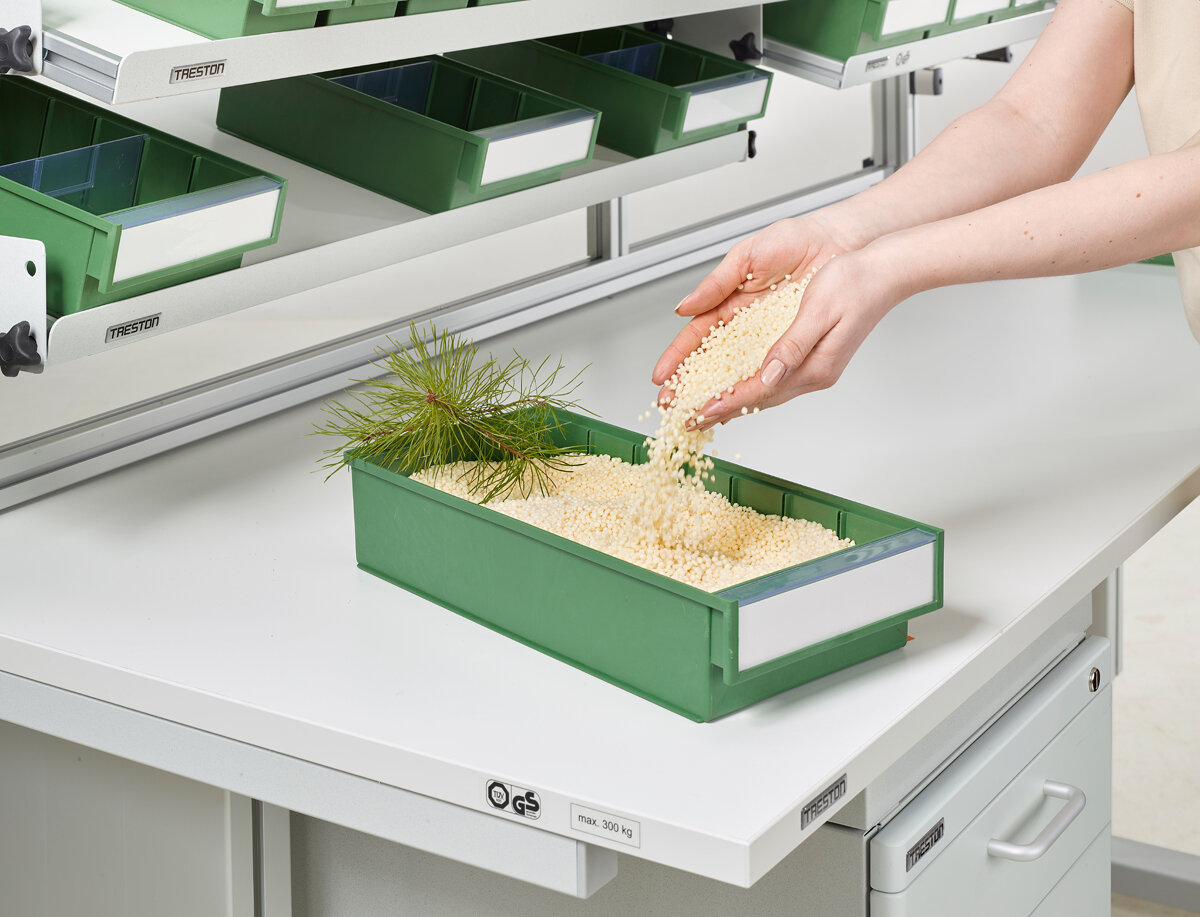
Materials are constantly evolving in a more ecological direction, and Treston is continuously monitoring new raw materials entering the market. In May 2022, we launched the first-in-industry bio-based shelf bin for industrial use: Treston BiOX.
The carbon-neutral material for Treston BiOX bins is over 90% wood-based renewable material, residue from the pulp production process, and cellulose fibers from sustainably managed forests. The quality, as well as the look and feel, remains the same as with traditional plastic bins.
Treston BiOX is not biodegradable, but it is 100% recycling ready, which means that it can be reused in the future as recycling technology evolves to accept bioplastics.
Our long-term goal is to provide an environmentally friendly carbon-neutral alternative to all fossil-based plastic products and components.
Sources:

